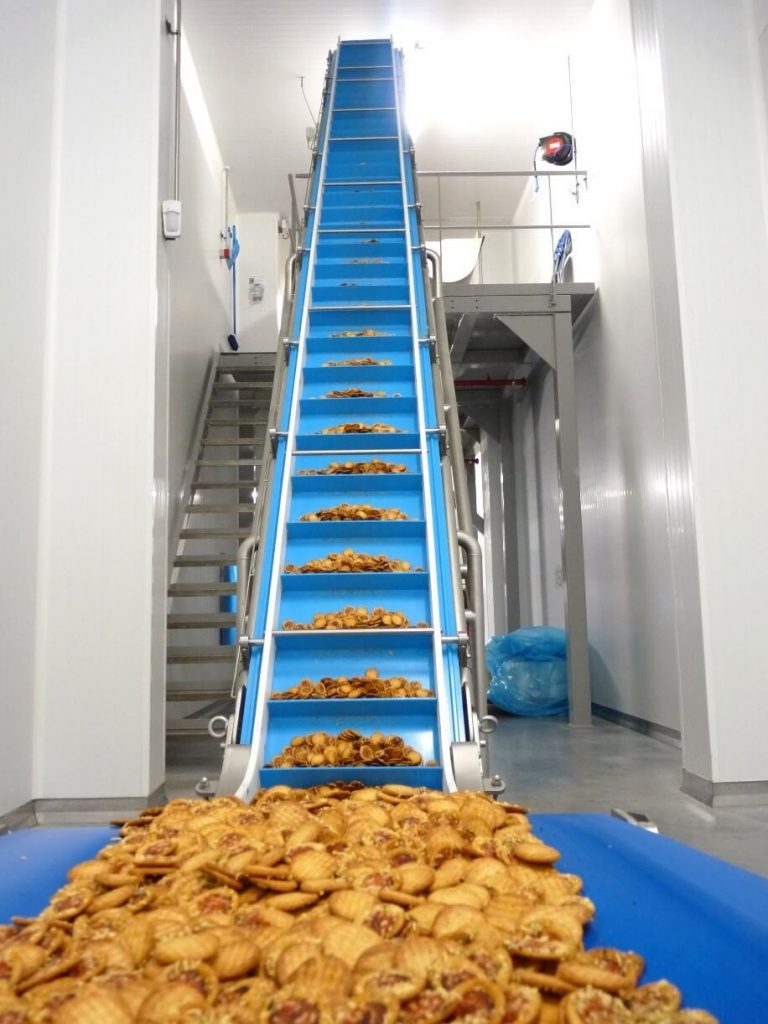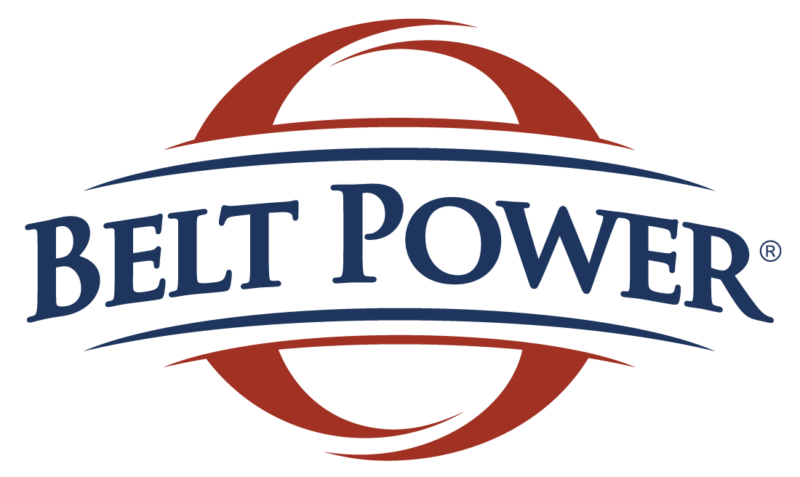- About
- Products
- Fabrication
- Services & Repairs
- Industries
- Manufacturers
- Resources
- Careers
- Contact
The virtual elimination of fabric conveyor belts has transformed the food processing industry. Today’s conveyor belts constructed of polyurethane and other thermoplastics can stand up to most chemical, thermal and mechanical challenges the food processing and packaging industries can throw their way. While food safety concerns remain paramount, the introduction and perfection of plastic polymers as conveyor belt materials has made them easier to clean and more resistant to biological and chemical agents. As a result, meat, dairy, bakery, confectionery, and other food-related manufacturers can consider other factors when deciding between the two major classes of food processing conveyor belts.
Modular plastic and monolithic materials have captured the lion’s share of food grade belting applications in the production and packaging industry. Both are marked improvements over fabric belts, whose edges must be encapsulated to prevent fraying that can contaminate foodstuffs. Choosing between modular plastic and monolithic belts depends largely on your plant’s applications. This article should help you decide which is best for your needs.
 Built from a continuous sheet of extruded homogenous material, the majority of monolithic belts are positively driven, eliminating the need for friction rollers in most food applications. The tensionless propulsion from positive driven belts simplifies the removal and reinstallation process for cleaning and maintenance tasks. It also reduces engineering costs, as they can be installed on lighter, less intensively designed carcasses. But their greatest feature is their cleanliness. Their non-porous surface and one-piece design prevents food particles from becoming lodged where they can attract harmful bacteria. This zero open space percentage makes them the best option for most applications dealing with raw, unpackaged meat and fruit and vegetable processing.
Built from a continuous sheet of extruded homogenous material, the majority of monolithic belts are positively driven, eliminating the need for friction rollers in most food applications. The tensionless propulsion from positive driven belts simplifies the removal and reinstallation process for cleaning and maintenance tasks. It also reduces engineering costs, as they can be installed on lighter, less intensively designed carcasses. But their greatest feature is their cleanliness. Their non-porous surface and one-piece design prevents food particles from becoming lodged where they can attract harmful bacteria. This zero open space percentage makes them the best option for most applications dealing with raw, unpackaged meat and fruit and vegetable processing.
Quickly becoming the material of choice in high-care and high-risk food grade belting applications, monolithic conveyor belts add to their hygienic qualities by being resistant to most caustic and abrasive cleaning agents. Less infrastructure also makes them prime candidates for clean-in-place systems, which shortens downtime between batches.
Polymer construction resists staining and absorption of water, oil, and cross-contaminants. Additionally, the construction from continuous sheets makes the belts both rugged and flexible.
Constructed of interlocking strips or pieces of plastic, modular plastic belts are generally driven by sprockets attached to both ends of the conveyor. They derive their greatest advantage over monolithic belts from their design options. The size of the modular pieces can be varied to fit different applications. Open space percentages can be modified to meet the standards for conveying packaged meat, raw fruit, bakery ingredients, etc. Large open spaces may be perfect for cooling baked goods, while smaller gaps would be best for moving small candies or allowing oil to drain from fried foods.
While the crevices created by the attachment of modular pieces to each other can create a slightly more difficult cleaning environment, modular plastic conveyor belts boast versatility that monolithic bets cannot match. The drive system and modularity make these belts the better choice in heavy or large load applications. Modular belts also can be routed around curves, a task monolithic belts cannot accomplish.
Belts made from plastic modules can also save companies money on repairs. In many cases, broken pieces can be removed and replaced individually. It’s much harder to repair cuts and tears in monolithic belts. Damaged belts often must be replaced.
Belt Power is the industry standard when it comes to food processing conveyor belts. We are enthusiastic about helping our clients maintain the most efficient, safe, and productive conveyor systems possible. We carry a full line of customizable conveyor belts to suit any industrial operation. Backed by decades of experience, our expert conveyor belt specialists can help you determine the best material, tools, accessories, and setup to meet your workflow demands and specific applications.
Our pros are always on call to provide assistance and know-how. Call us toll free at 800-886-BELT (2358) or contact us anytime for a prompt response to your inquiry.
